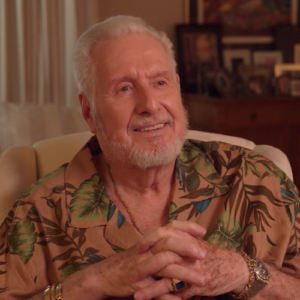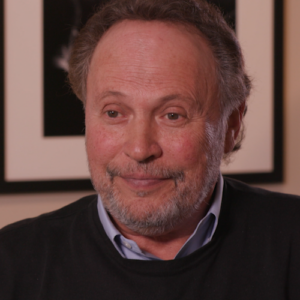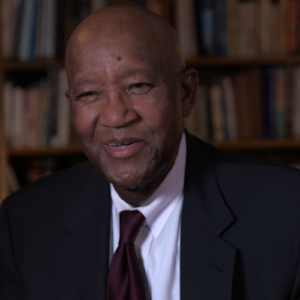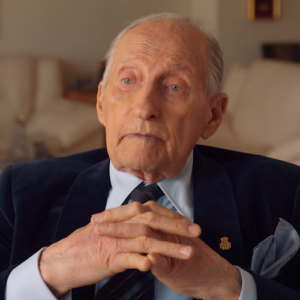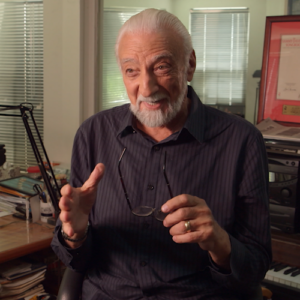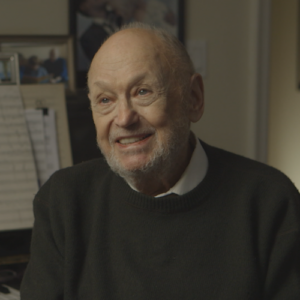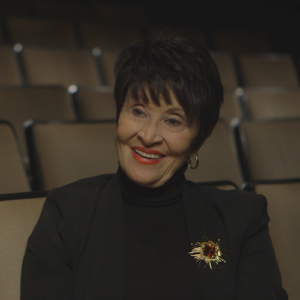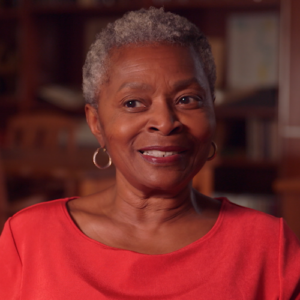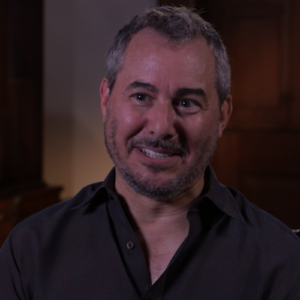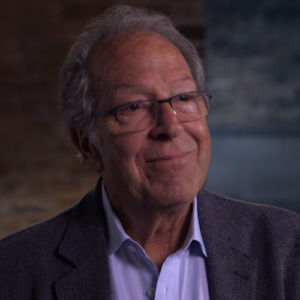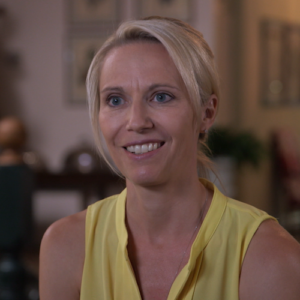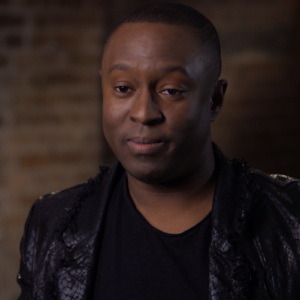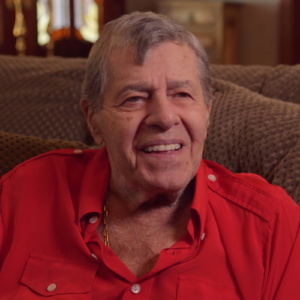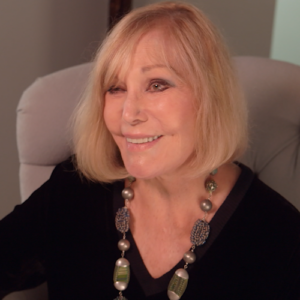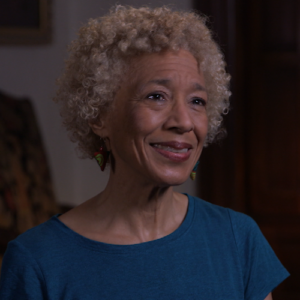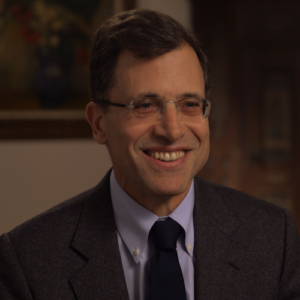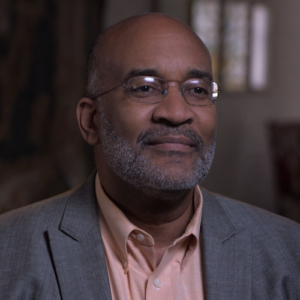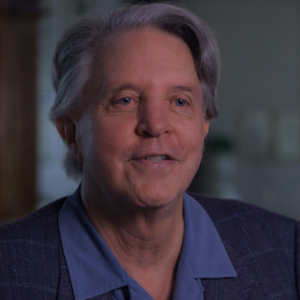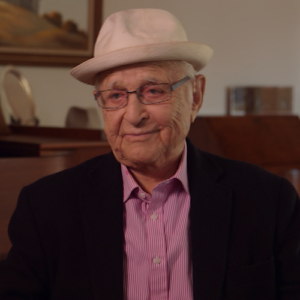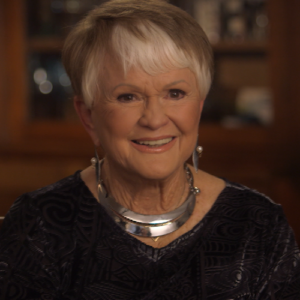Baayork Lee: My name is Baayork Lee.
Interviewer: Yes. Just get right down.
Baayork Lee: And okay.
Interviewer: Go. Go ahead and say it.
Baayork Lee: And I was a dancer in Golden Boy.
Interviewer: That’s all right. Who was Sammy Davis Jr?
Baayork Lee: Who is Sammy Davis Jr? I think he was one of the greatest performers that we’ve ever had in the United States. He was a triple threat before a Chorus Line invented the word triple threat. He could sing, dance, act. He did everything. Shoot guns. I mean, he was more than a triple threat.
Interviewer: Sometime over a documentary is so many lives of Sammy Davis Jr. What were some of those lives?
Baayork Lee: Well, Sammy was an actor. He was an incredible tap dancer and an actor. Actor. Dancer, singer. Oh, what a singer.
Interviewer: When did you first become aware of Sammy?
Baayork Lee: Oh, I think everybody knew who Sammy Davis was. I grew up in the theater at the age of five. I started in the King, and I. I was always around theater people, and. But The Ed Sullivan Show, Sammy Davis Jr. And his uncle and father tap dancing on the Ed Sullivan Show. Of course, everybody knew him.
Interviewer: Now you’re a child of the stage. Yes. Sammy was a child of the stage. What was it like growing up on the stage?
Baayork Lee: I loved it. I loved signing in, performing. I loved every aspect of the theater. I would get there early every single day because I loved it so much.
Interviewer: Well, when did you first meet Sammy? What were the circumstances?
Baayork Lee: Well, Elliot Lawrence was the musical director for Here’s Love. And I was a kid in that show. And he told me that he was going to be doing a new show called A Golden Boy, and that they needed a shoeshine boy and an understudy. And he knew that I could dance. And he advised me to go and audition for the show. And Sammy wasn’t there. But when I got there, Hymie Rodgers, who had gone to my dancing school, was there. And he told Donna McHale that not only could I play a kid, but I also danced. And so I was, oh, I couldn’t believe it. I was going to be in the show. Yeah.
Interviewer: How is how is Golden Boy received?
Baayork Lee: Golden Boy was a huge success. I’m telling you, everybody, every star came. I mean, after each show, we would just wait to see who would come back. And Julie Andrews and Jackie Onassis. And I mean, it was just absolutely incredible. But, you know, the most important thing was how Sammy treated us. I was just a chorus kid and in awe of him. And every night we would have to not have to, but we’d come in and sign in. And Sammy was always there very, very early. And we’d go to the dressing room, said, you know, good evening, Mr. Davis. And then the evening we would say, Good night, Mr. Davis. Because every night he had a party going or a movie going, and he would invite everyone. And of course, I lived at home with my family. My brother would meet me every night and I would I’d go home. But Sammy had entertainment every single night for the entire cast.
Interviewer: Why do you think he did that?
Baayork Lee: I think he just loved. Well, first of all, he was a night person because he was from nightclubs and he liked people, you know, and and being around the dancers and the actors and but he invited everyone. If we had a party, he would go out front and talk to the guys who swept the floor and the ladies who clean the bathrooms. And they were invited to it to all of our parties.
Interviewer: Well, let’s talk about Sammy as a dancer. Mm hmm. What traditions did he come out of?
Baayork Lee: Traditions, I think as a dancer, he was, I think, a street dancer. A strict tap tap dancer. That’s what I, you know, was told that he would dance on the street for pennies, and then he would. And he and his father and uncle formed this group. But he was incredible. I’ve seen some old footage of of this little kid just doing it.
Interviewer: Was he innovative as a dancer?
Baayork Lee: Oh, absolutely. I mean, Savion Glover, I mean, all the new tap dancers now of. Love that Sammy was the founder of what theater is Tap Theater is now. I don’t know if that came out too well, but you.
Interviewer: Want to put it?
Baayork Lee: Yeah.
Interviewer: Okay. You know, I thought the game was great.
Baayork Lee: But. Yeah.
Interviewer: Let’s see. I was innovative as a dancer.
Baayork Lee: Of Sammy was so innovative as a dancer. You have every single young tap dancer in this town and generation before him, he was the person that they emulated his style of tapping. I’m from the ballet world, but I certainly know of, you know, Sammy’s way of tapping. You’d be talking to Sammy and he’d be watching you, and his feet would be doing different rhythms. You know, he never, ever stopped. He was just tapping all the time, talking to, you know.
Interviewer: Just the golden boy went through many revisions, many changes. Numerous changes, according to Charles Strauss. How did Sarri help the cast adjust to the changes?
Baayork Lee: Sammy always explained what we were going to be doing as well as the director, Arthur Pan. I was, of course, in the chorus and everything came, you know, five days later probably, and only worried about what I had to do. But there were a lot of changes. And and it was it was hard because we also changed our choreographer. Donna Kail was let go and Nora Kaye and Herb Ross came in, which is a whole different style of dancing, you know. But they were there to tweak and to help. So that was that was hard to adjust to.
Interviewer: But when you see those different styles of dancing. Can you tell us what the change, what that is?
Baayork Lee: Well, Herb Ross in Turkey came from the ballet world. Donna McHale came from the modern world. And also the style of dancing that he was created was, you know, we had street dancing and we had spirituals and things like that. So I’m sure that they did their research. But just for us to adjust. It was I thought it was difficult.
Interviewer: Sammy’s love interest on stage following like no other, paralleled his life. Sammy’s life was married to a vibrant. Was that art imitating life?
Baayork Lee: Yes. Sammy being married to my Britt and playing with Paula Wayne on stage, that was definitely art imitating life.
Interviewer: How was that received like? Audiences? Because it was it was the first interracial love story on stage, which also says, how was it received?
Baayork Lee: Well, we didn’t know what was going to go on in the house, especially, I believe, when we went to Detroit and we were warned about Detroit. And I just remember looking up at the, uh, in the theater and people were booing us, which I didn’t understand. And then we had to be escorted out of the theater by a police escort in Detroit. Yeah, it was scary.
Interviewer: What are some of the other problems leading up to the Broadway opening? And how did Sammy help or hurt?
Baayork Lee: Some problems. Well, you know, as a dancer, we were always working and changing steps and and all of that. And I am sure that they were working on the book because every night or every run through, there was definitely a change. And I’m sure Sammy had a lot to do with it, you know, his influence and also on, you know, we had a lot he hired a lot of nightclub performers and they didn’t have the discipline of the actors equity rulings. You know, they came in when they wanted to come in, and so we had to work around that.
Interviewer: Sammy wasn’t an trained actor. What what how did he approach the material as an actor?
Baayork Lee: I think he was just real, a natural. Everything he did was just natural. I don’t think he needed acting lessons. You know, he could relate to the role. And of course, I didn’t know anything about acting then. I do now. But he was such a natural. And you know what I loved about him? He was so generous. Every time he did a commercial or he did something and they gave him a product, he gave every one of us a little piano or a watch or he was always giving us gifts. Such a generous man. But the entire theater, you know, he was incredible also. Do you know that after every show, we would take our ball and Sammy would say, okay, kids, you can go. And the musicians would get up and go, and he would just have his band in the orchestra pit. And for at least 45 minutes, he would do his act every single night and we would take our clothes off, run around the front and watch Sammy Davis do his nightclub act every night. And nobody left the audience. They were getting a double show.
Interviewer: They did not. Why do you think he did that?
Baayork Lee: I you know, he’s he’s a night guy. He’s a nightclub guy and he loves to perform.
Interviewer: Yeah. Okay. Well, Sam, you said that golden boy occupied 26 hours a day of his life. Did he overdo it?
Baayork Lee: I don’t think Sammy over, over did anything. 26 hours. 28 hours. He had so much going on. You know, he had to meet people. Rehearsals. He had so much going on. But I think he thrived on that. I really, really do.
Interviewer: Can you describe what Sam was like with his family?
Baayork Lee: So Sammy’s kids would come to the theater and they would be playing in the dressing room. He’s a real dad. He was a real dad. He had two kids scalp.
Interviewer: Was he different when his family wasn’t around?
Baayork Lee: Oh, yeah. You know, Sammy was. Sammy was performing all the time. And he was a little kid because sometimes he would play tag in the theater, and you’d have to be careful because he’d be behind the curtains and he’d come out and chase you, run you around the theater and up and down. He was like a little kid.
Interviewer: That he was notorious womanizer who captured his attention in the cast.
Baayork Lee: I think it was Lola Falana that captured Sammy’s attention in the cast. And yes, she was she was part of the chorus and we were all dancing. And then one day they took her out and they gave her these gold pants and she went strutting around. I think it was Lola.
Interviewer: That’s fantastic. Oh, you grew up about TV’s. You tell us about it before and after said.
Baayork Lee: Yes, I will tell you about Altovise, because at the age of three, we both went to Sevilla for dancing school together. And I got into King and I because at five and then I came back at eight and she was still there. And then we stayed until it was high school and we both went to performing Arts high school together. We both graduated and Al went the Alvin Ailey route, which was modern. And then I went the ballet and the musical theater route. And years later, not a couple of years later, I had gotten into Golden Boy. And then Sammy said, We’re going to London. And so we got to London and Jeanette, two boys who played his sister in the show, she was not going and there was Altovise in London playing Sammy’s sister. And I was just so excited because I had a girlfriend and it was the first time I was in London and we spent a lot of time together. And after that, Michael Bennett called me and he said, Byock, I am doing promises, promises, How do I get you out of your contract? And so Michael Bennett got me out of my contract and I left London. But during that time, Sammy, after the show closed, he went on a European tour and he took Altovise on the tour as one of his dancers. And then I got back to New York. I did Promises, Promises, and Altovise came down and she said, Look at my ring. I’m engaged to Sammy. I was so excited. And she married Sammy. And I just want to say, every time they were in New York, Altovise and Sammy would call me and I would go over to their hotel, have lunch or dinner with them, and I was invited to all of his shows.
Interviewer: In what way was she a different wife for him than Mae Brit?
Interviewer: Yeah.
Baayork Lee: Oh, I have no idea.
Interviewer: Oh.
Interviewer: What was the Davis dynamic different?
Baayork Lee: I think Sammy’s interaction with my Britt was was totally different than with Altovise, because I believe that maybe at that time they were having problems and so she didn’t come around to the theater as much. I know that Lola was babysitting for him after the show. Sometimes she would say, I’m going to babysit for for Sammy. So maybe he was going out with his wife, but with Altovise, because she’s a dancer and it’s much more physical and playful. There was a totally different dynamics.
Interviewer: We loved dances. Where was Sammy best as a performer? Because, like you said, he’s beyond the triple threat with when you think he was best.
Baayork Lee: I would think maybe nightclubs because that’s where he lived. You know, maybe Las Vegas, because that’s where his home was. But let me.
Interviewer: Answer just so my question. Yeah, great answer. Where do you think he was best as a performer?
Baayork Lee: I think Sammy was best as a performer in Las Vegas because that was his home and he could really relate to the audience. And but you know what he would do sometimes if he got a frog in his throat when he was singing Yes, I Can. And we had to come on and dance. He’d say, Wait a minute, everybody go back off. And then he’d say, I’m so sorry. I got a frog in my throat. We’re starting over again. And the audience would just scream, and we have to start over again. He he loved relating to the audience. He broke that fourth wall in theater. He did all the time.
Interviewer: What a great answer. She spoke in Golden voice. Sami sang a lyric in a song, No More. I then went down. Mm hmm. Did he live by those words?
Baayork Lee: I really believe that Sami live those words. I ain’t bowing down no more. Every single day in his life, so much was happening at that time. Martin Luther King, the marches. And he was involved in every single aspect of it. I remember the night that he told us that Martin Luther King was killed and spoke down. We all did, because we knew how important he was to the movement.
Interviewer: He always said that all he had was his talent. I don’t deserve this. Why me? For someone so accomplished in so many fields. Why was he so afraid of failing and failing at one?
Baayork Lee: Wow. I think all performers are insecure and we all don’t want to fail. We want to prove we want to be liked. Maybe that’s why we get into the theater, because we want people to like us. We want to hear the applause. He was a child child performer. I was a child performer. And we don’t have a childhood. We’re with adults all the time and we want their approval all the time. And maybe we don’t grow up.
Interviewer: He gave one of his signature songs is Mr. Bojangles. Oh, he was initially afraid to embrace that song. Well, what about that song reflects the views of a dancer?
Baayork Lee: I don’t know. I can’t think of of.
Interviewer: What can the next generation performer learn from serving?
Baayork Lee: What can the next generation learn from Sammy Davis? The more he’s more than a triple threat. His artistry. Every single thing about his performance just go to, you know, the television museum and and watch him on screen how he works, the cameras and his diction was so precise. Everything about his performance. We can learn a lot.
Interviewer: Good to throw some words at you in that we feel. Describe Sammy and just go play a word. Word association.
Baayork Lee: Oh, dear. Okay.
Interviewer: Okay. It’s just whatever comes to mind, just say it. Prodigy.
Baayork Lee: Definitely a prodigy.
Interviewer: Whoever.
Baayork Lee: Dance master.
Interviewer: Impressionist.
Baayork Lee: Oh, yes, Impressionist. Oh, my God. He did. He did. Everyone. Oh, what can I think of it? What can I think of it? Impressionists. John Wayne.
Interviewer: Singer.
Baayork Lee: Oh. What kind of. Who am I? A singer. Frank Sinatra.
Interviewer: I love my kids. Okay. A survivor.
Baayork Lee: Sammy Davis as Survivor instigator. Oh, Sammy Davis was definitely the instigator.
Interviewer: Actor.
Baayork Lee: Actor. Olivier.
Interviewer: Activist.
Baayork Lee: Harry Belafonte. Martin Luther King. Sammy Davis.
Interviewer: Wow. Okay. Nice hipster.
Baayork Lee: Hipster. Oh well you know, we use from the forties and so. Zoot suits.
Interviewer: Patriot.
Baayork Lee: Patriot. Oh dear. A true American.
Interviewer: Legend.
Baayork Lee: He’s a legend. How dare. A legend.
Interviewer: Sammy Davis impression, right? He was in Golden Boy, and I’ve seen him do this like he would imitate not just voices, but imitates dancers. And I think he intended to stare. Do you have any memory of that? Of him imitating physically what other dancers could do? Mm. Okay.
Baayork Lee: Because he was always tapping.
Interviewer: Yeah. Was he treated differently in London than in New York? Does he have to hear this?
Baayork Lee: Oh, absolutely. Sammy was treated like a king in London. Of course, everybody loved him in New York. But when we got to London, it was a whole other, you know, upper echelon. And the Princess Margaret would come to see us and different different actors would come backstage. And he was a king in London at The Talk. He was always at the talk, the talk of the town. And so when he came, we were at the Palladium. And so when he came to town, all of his fans, all of his fans came to see him.
Interviewer: Did he take on English heritage? He becomes.
Baayork Lee: Oh, yes. Sammy Davis took on English airs definitely when he got to London. It was it was very different. But also he was, I believe, dating Altovise. You know.
Interviewer: And we talked earlier about him breaking the news about Martin Luther King being killed. Do you remember that on the stage after the show? Chuck, a little more about that, because that’s an important part.
Baayork Lee: I, I when when Sammy told us that Martin Luther King had been killed, it was it was on the stage. He gathered the entire company on the stage and told us on it he could hardly speak. And we were devastated. We all were.
Interviewer: And Martin Luther King had seen the show twice, I gather. Do you remember meeting him or seeing him?
Baayork Lee: Oh, I remember meeting Martin Luther King backstage because Sammy was so generous. He would have the he would have the company stay on stage. He wanted us to meet everyone. And it was just, you know, we were so I was so honored, you know, being a dancer in the chorus, to be able to meet these incredible, you know, famous people. I was honored. I loved being in that show. I loved dancing in the show. I loved watching Sammy Davis on stage. I was watching Sammy Davis. I couldn’t believe it because I used to see him on The Ed Sullivan Show and I was watching Sammy Davis and performing with him.
Interviewer: What kind of vibe did he give you back as a performer? Oh, that inspired you?
Baayork Lee: Oh, he he gave 2,000% every single night. And, you know, sometimes we would have to wait until 9:00. I don’t know what he was doing in the dressing room, but then he would come out, you know, and they would say technical difficulties or whatever. They would tell the audience. And everybody waited. We waited. But when Sammy came out and did his show, he just gave 3,000%. And we did, too.
Interviewer: You know, you’ve talked about in Detroit or crying out that the audience reaction was scary. And as a person of color and come in, if you can place us in the sixties, why why was it scary? What was going on with an audience seeing an interracial kiss place us there?
Baayork Lee: Well, in the sixties, you did not have a black man kissing a white woman on stage. And Sammy warned us when we would go to Detroit that there might be problems and so on. Dancing and dancing. And we’re starting to, you know, and we hear all this booing and people screaming at us. It’s like, wow, what is going on? And then we had to be escorted out of the theater by the police escort. That was scary.
Interviewer: And Sammy didn’t seem to. I mean, he’s doing it on stage and getting paid for it, but he didn’t seem to mind taking on that challenge in real life to speak to that. Like the idea that other people would either black people would say, oh, you should be with a black woman or the white people would whatever speak to just his whatever courage or his brashness in terms of just doing what he wanted.
Baayork Lee: Yeah. Sammy’s courage in in marrying a white woman at the time that he did and and performing with Paula on stage. I think he was he was breaking down barriers. He was really got that hatchet in there, and it was in-your-face. He wasn’t hiding it at all. And to do a goal of the show, Golden Boy took a lot of courage and and he took it all on his shoulders. When we talk about Sammy having a white wife and kissing a white woman on stage and I was the only Asian in the show and I was just accepted like everyone else, I was a dancer. It was never brought up. We also had a couple of white ladies in the show, in the chorus. It was never brought up. We were we were all the same. And that was Sammy’s motto. We’re all the same.


